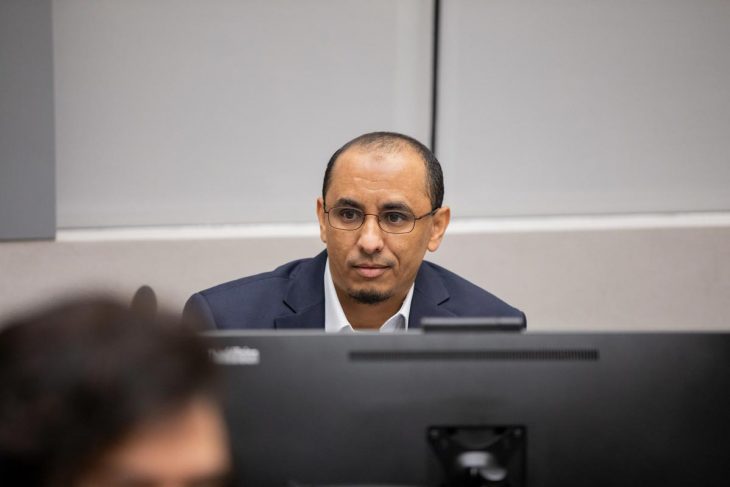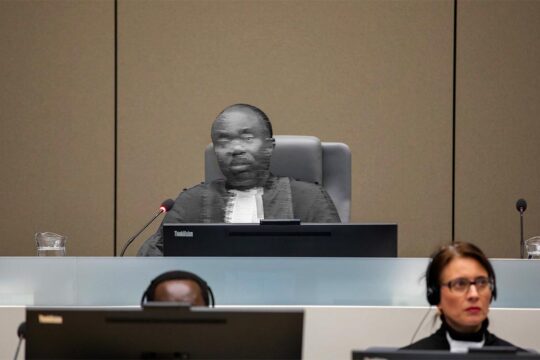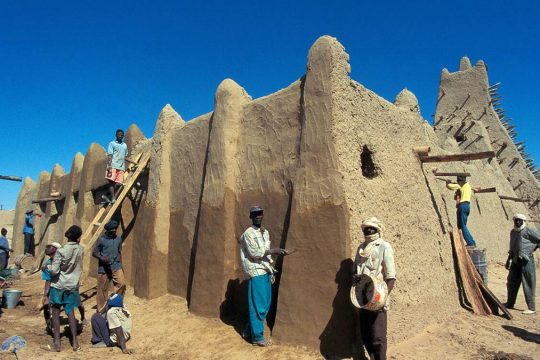To listen to the podcast, click on the "play" button below:
The second trial of a Malian jihadist is underway at the International Criminal Court. Al Hassan Ag Abdoul Aziz Ag Mohamed Ag Mahmoud faces charges of war crimes and crimes against humanity for what happened in Timbuktu during 2012 to 2013 when Islamic fundamentalists took it over.
Already the court has looked at the destruction of cultural heritage – the city was an ancient centre of Islamic scholarship with extraordinary mosques, shrines of ancient Islamic saints and libraries.
But our two guests told us how much more there is to the al Hassan trial. Women’s rights expert Georgiana Epuré, who joined in her personal capacity, explained about the gender aspects of the charges and how the court will have to rule for the first time on gender-related crimes.
Thijs Bouwknegt, long term trial monitor and historian at NIOD Institute for War, Holocaust & Genocide Studies unpeeled the prosecution and defence strategies so far.
 ASYMMETRICAL HAIRCUTS
ASYMMETRICAL HAIRCUTS
This podcast has been published as part of a partnership between JusticeInfo.net and Asymmetrical Haircuts, a podcast on international justice produced from The Hague by journalists Janet Anderson and Stephanie van den Berg, who retain full control and independence over the contents of the podcast.



